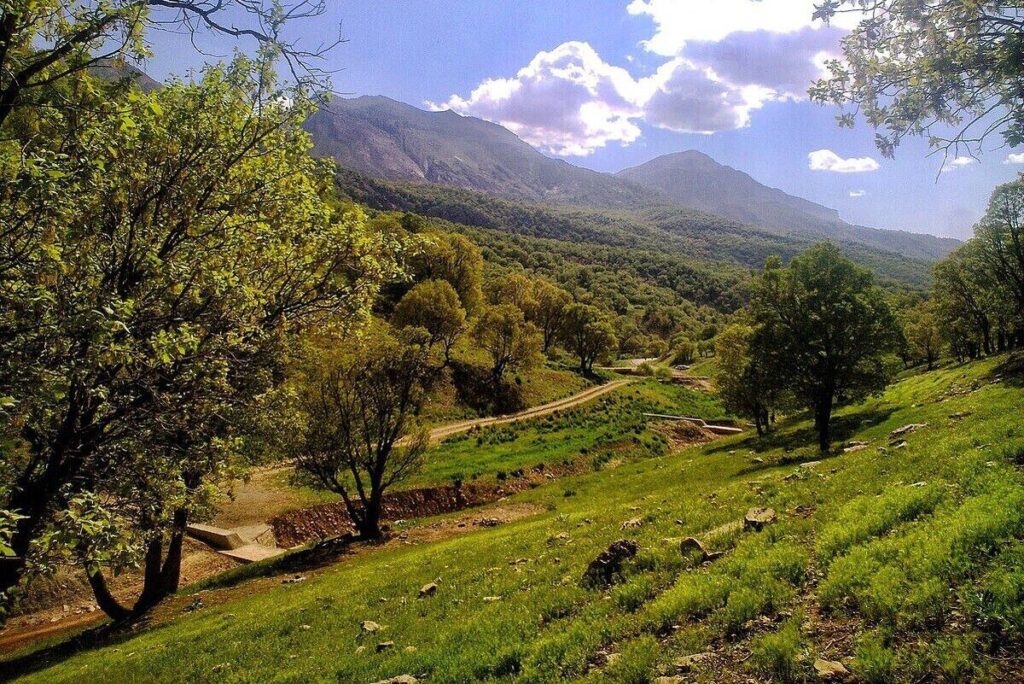TEHRAN – Iran is calling on international organizations and other countries to help maintain Zagros forests through a comprehensive cooperation programme, the head of the Natural Resources and Basin Management Organization said.
Zagros forests are one of Iran’s most important natural resources, accounting for 40% of the country’s forests and play an important role in the production of most of the country’s freshwater.
Iran is famous for having one of the oldest forests in the world. The country’s 300,000 hectares of forests are engraved on UNESCO’s World Heritage List, the IRNA quotes Ali Teimouri as saying.
Officials made their remarks while working on an international conference on sustainable management of Zagros forests.
“Their geographical location makes these forests have flora and fauna diversity. Zagros forests show rich biological diversity, with over 2,500 plants and animal species not even found in the rest of the country or in the world.
These forests serve important economic and social functions and contribute to the livelihood of the local community. But they are threatened by a variety of factors, including climate change, frequent wildfires and illegal exploitation,” he added.
To address environmental challenges and improve sustainability metrics, Teimori said, Iran needs to develop international cooperation focused on technical support, exchanging experience, fundraising and providing regional and scientific cooperation.
Officials went on to say that Iran is willing to benefit from other countries’ expertise in the design and implementation of sustainable forest management projects. As environmental challenges are universal, the country is trying to use global environmental structures and facilities to restore forests.
Iran’s forested areas account for approximately 14 million hectares, accounting for 7.5% of the country’s total land area. The forests are scattered across different regions around the country. The current per capita forest area is around 1,700 square meters, and the per capita forest area around the world is 5,600 square meters, Teimori said.
The inclusion of sustainable management, economic, social and environmental sustainability indicators of Zagros forests through participatory management or social forestry, and involvement of local communities, government agencies and the private sector, lies on the agenda of the country’s natural resource organizations.
UN Escap is adopting Iran’s proposal for conservation of Zagros forests
With approval of Iran’s proposal for the protection of Zagros forests at the 80th Annual Annual Session (ESCAP) of the United Nations Economic and Social Commission in Asia and the Pacific, the issue has been featured on the Asia-Pacific Centre for Development of Disaster Information Management (APDIM).
Escu’s 80th session was held at the United Nations Conference Centre in Bangkok from April 21-25, and was led by “regional cooperation for resilience and sustainable urban development in Asia and the Pacific.”
The state was actively involved in the conference, negotiating primarily on transportation, the environment, disaster resilience, energy, poverty reduction and development financing. They also submitted a report from the Governance Council, along with the APDIM Strategic Plan.
Session 81 served as an opportunity to promote comprehensive urban growth and to promote immobilizing action for the implementation of the 2030 Agenda for Sustainable Development at all levels.
It further highlights the important role of regional cooperation in overcoming the challenges facing cities, localizing global goals, identifying shared approaches to strengthen multi-level climate action and fostering inclusive urban growth. It also highlighted the importance of data, digital transformation and innovative funding to support sustainable urban development and ensure that cities can navigate the complex future for the future.
In March, Rasoul Ashrafipour, an official with the Natural Resources and Basin Management Organization, emphasized that promoting the diplomacy of natural resources is one of the organization’s priorities.
“We invite countries with a Mediterranean climate in particular. The vegetation is similar to that of Zagros and we are taking effective measures to preserve it.
Referring to the negative impacts of climate change on natural resources, Ashrafipur said weather data shows that domestic temperature rises are higher than the global average, indicating that it has a significant impact on climate change.
Therefore, in collaboration with weather organisations, the natural resources and basin management organisation will prepare some new documents over the next six months, officials noted.
mt/mg

